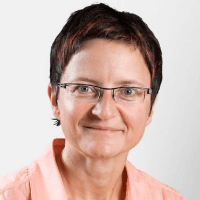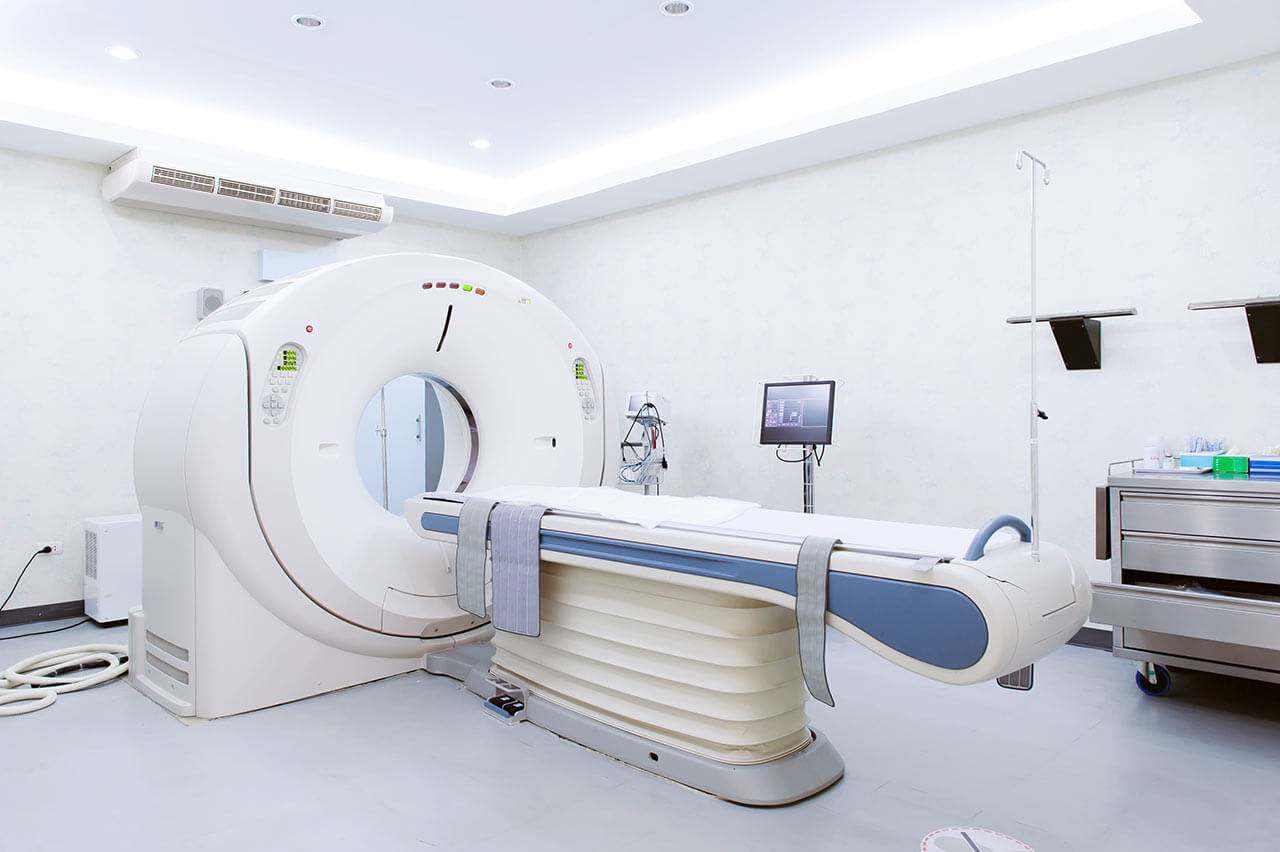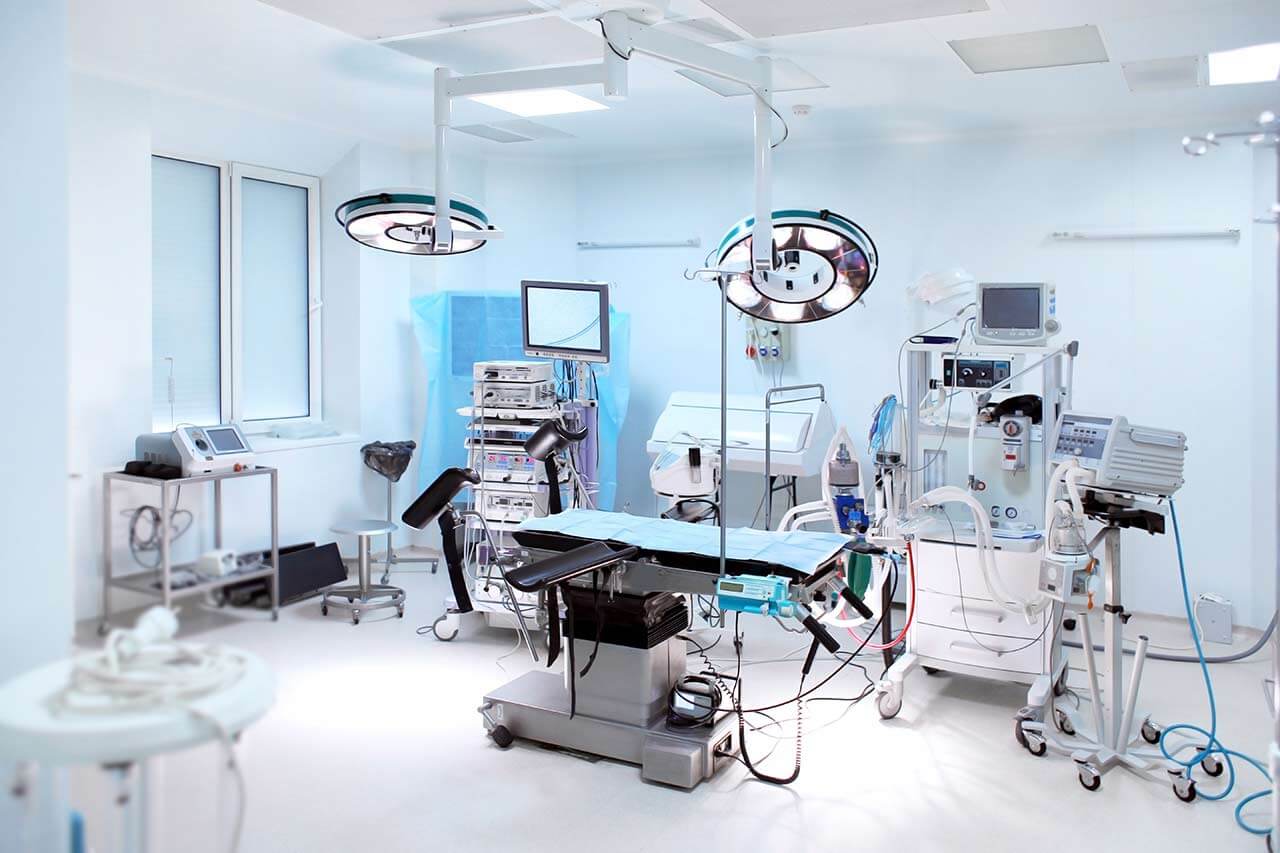
The program includes:
- Initial presentation in the clinic
- clinical history taking
- physical examination
- laboratory tests:
- complete blood count
- general urine analysis
- biochemical analysis of blood
- TSH-basal, fT3, fT4
- tumor markers
- indicators of blood coagulation
- CT scan / MRI of the abdomen
- abdominal ultrasound scan
- 1 course of chemotherapy
- nursing services
- services of leading experts
- explanation of individual treatment plan
How program is carried out
During the first visit, the doctor will conduct a clinical examination and go through the results of previous laboratory tests and instrumental examinations. After that, you will undergo an additional examination, including laboratory assessment of liver and kidney function, ultrasound scan. Based on the received results, the doctor will elaborate the chemotherapy regimen. If necessary, related medical specialists will be involved in the elaboration of a treatment regimen (tumor board).
Chemotherapy is carried out as the day hospital procedure, without mandatory admission to the hospital. After the placement of a venous catheter, you will stay in a comfortable ward. An infusion system will be connected to the catheter, through which the required drug or a drug combination will be administered. All drugs are administered by intravenous drip, slowly, so the total duration of the infusion can be up to several hours. All this time, doctors and nurses will monitor your health condition closely.
After the course of chemotherapy, you will stay under medical supervision in the ward for a few more hours. If your general condition is good, your doctor will allow you to leave the hospital. You will receive the medical report with detailed recommendations regarding further treatment. In the future, you will be able to have a distant consultation with your attending physician and schedule the next course of chemotherapy, if necessary.
Required documents
- Medical records
- MRI/CT scan (not older than 3 months)
- Biopsy results (if available)
Service
You may also book:
 BookingHealth Price from:
BookingHealth Price from:
About the department
The Department of Oncology at the Hirslanden Salem-Spital Bern offers a wide range of services for the prevention, diagnostics, treatment and follow-up of patients with malignant tumors of various organs and anatomical structures. The treatment is based on an interdisciplinary approach, which implies the participation in the therapeutic process of all the necessary specialists in related fields, for example, when treating uterine cancer, a woman is supervised not only by oncologists, but also by gynecologists, radiation therapists, radiologists, etc. The department has excellent technical infrastructure for conducting first-class diagnostics and effective treatment even in the advanced stages of cancer pathologies. At the terminal stages of cancer, the patients are prescribed palliative therapy to alleviate pain and improve the quality of life. The department is headed by Dr. med. Esther Bärtschi.
The treatment of oncological diseases is mostly based on three basic forms of therapy. These include surgical resection of the tumor and affected tissues, chemotherapy and radiation therapy. Other relevant methods are also used for appropriate clinical indications, for example, hormone therapy, antibody therapy, immunotherapy, etc. The decisive factors in the choice of treatment tactics are the stage of the oncological process, the localization and size of the tumor, the presence or absence of metastases. Given all these aspects, the doctors jointly develop the optimal treatment regimen. Once the full course of treatment is completed, it will necessary to have follow-up care – regular follow-up examinations to confirm remission or timely detection of relapse.
The department specializes in:
- Diagnostics and treatment of breast cancer
- Diagnostics and treatment of cancer of the female genital organs (uterine and cervix, ovaries, vulva)
- Diagnostics and treatment of cancer of the male genital organs (prostate, testicles, penis)
- Diagnostics and treatment of cancer of the gastrointestinal tract
- Diagnostics and treatment of kidney cancer
- Diagnostics and treatment of bladder cancer
- Diagnostics and treatment of lung cancer
- Diagnostics and treatment of soft tissue and bone sarcomas
- Diagnostics and treatment of other oncopathologies
Curriculum vitae
Education
- 1988 - 1994 Study of Human Medicine, University of Bern.
Professional Career
- Since 01.12.2007 Private Oncology Practice (Brückfeldstrasse 19, Bern 3012).
- October 2002 - October 2007 Senior Physician, Department of Oncology, Cantonal Hospital Aarau.
- October 2001 - September 2002 Department of Oncology, St. Gallen Cantonal Hospital.
- January 2001 - September 2001 Department of Oncology, Cantonal Hospital Aarau.
- April 2000 - December 2000 Department of Internal Medicine, Cantonal Hospital Aarau.
- December 1998 - December 1999 Department of Internal Medicine, Cantonal Hospital Bruderholz.
- December 1998 - December 1999 Department of Internal Medicine, Cantonal Hospital Bruderholz.
- December 1997 - November 1998 Department of Oncology, Cantonal Hospital Bruderholz.
- August 1997 - November 1997 Department of Internal Medicine, Cantonal Hospital Bruderholz.
- July 1995 - May 1997 Department of Internal Medicine, Regional Hospital Thun.
Memberships in Professional Societies
- Swiss Society of Medical Oncology (SGMO).
- American Society of Clinical Oncology (ASCO).
- European Society of Medical Oncology (ESMO).
- Swiss Association of Doctors (FMH).
- Bern Medical Association.
Photo of the doctor: (c) Hirslanden AG
About hospital
The Hirslanden Salem-Spital Bern enjoys the status of a modern medical facility, which work is based on the highest medical standards, a humane and respectful attitude towards patients. The history of the health facility began back in 1888, when it functioned with the assistance of the Deaconess Foundation. In 2002, the hospital became part of the well-known Network of Swiss Hirslanden Medical Centers, which diagnose and treat patients in all fields of modern medicine. The Hirslanden Network has 18 clinics across the country. The hospital has 163 beds for the hospitalization of patients. The medical complex also includes 7 high-tech operating rooms and 4 excellently equipped delivery rooms.
The hospital’s key areas of specialization are orthopedics and traumatology, spinal surgery, gynecology and obstetrics.
The quality of medical services is monitored through an effective quality management system. Since 2010, the hospital regularly openly publishes all indicators of clinical activities, which helps to increase patient confidence.
The hospital is located in the central and at the same time quiet part of the beautiful Swiss city of Bern. The windows of the patient's rooms overlook the beautiful views of the Old City and fascinating alpine landscapes. The medical institution is also proud of its own spacious garden where one can stroll along the pond, relax and gain strength. All these details, combined with the excellent quality of medical service, guarantee the best treatment results and comfort.
Photo: (с) depositphotos
Accommodation in hospital
Patients rooms
The patients of the Hirslanden Salem-Spital Bern live in comfortable rooms made in a modern design. Each patient room has an ensuite bathroom with shower and toilet. The standard patient room includes an automatically adjustable bed, a bedside table, a table, a chair, an armchair, a TV and a telephone. If desired, one can connect to Wi-Fi. The hospital also offers accommodation in the enhanced-comfort patient wards, which are additionally equipped with a safe, a refrigerator and upholstered furniture.
Meals and Menus
The patient and the accompanying person are offered a daily choice of three menus. If you are on a specific diet for any reason, you will be offered an individual menu. Please inform the medical staff about your dietary preferences prior to the treatment.
Further details
Standard rooms include:
Religion
The religious services can be provided upon request.
Accompanying person
During the inpatient program, an accompanying person may stay with the patient in the room or at a hotel. Our managers will help you choose the most suitable option.
Hotel
During the outpatient program, the patient may stay at the hotel. Our managers will help you choose the most suitable option.




